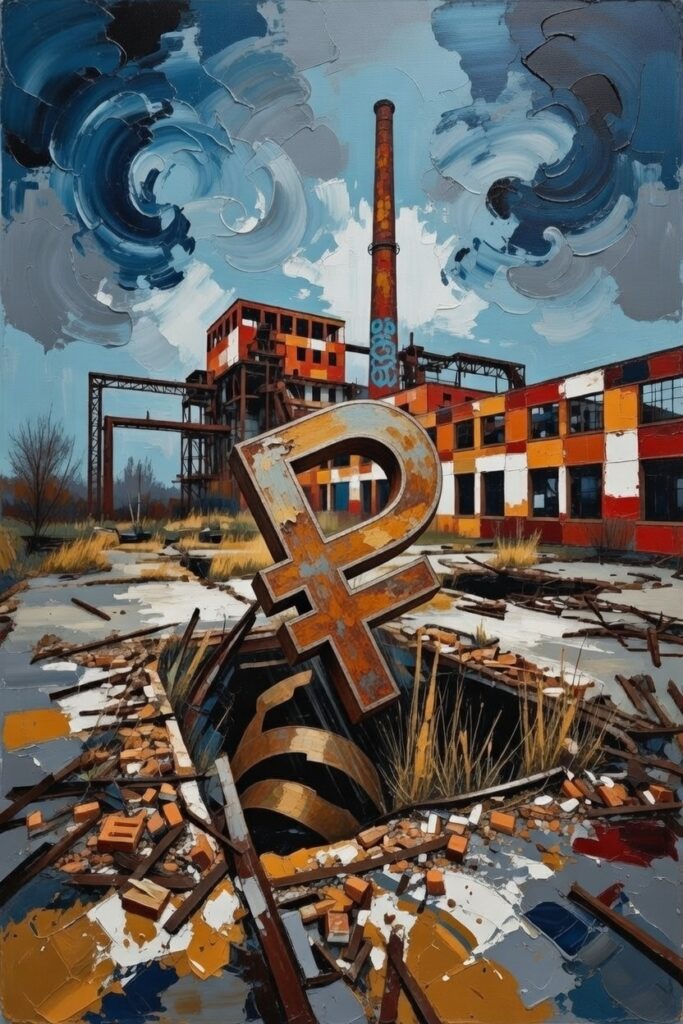Social media and market shops are abuzz with the International Energy Agency (IEA)’s reported «about-face» on peak oil demand with the publication of its Current Policies Scenario. Desperate for a strong demand story, there is now an intentional effort to ignore that the scenario is just that—a scenario, and not a forecast. Worse, the scenario makes a variety of assumptions about future electric vehicle demand and related areas that are so improbable in their likelihood, it’s as though the boosters can’t read. But the timing of the latest energy melodrama is significant, as the Kremlin’s «reliable rear”—the economy—is mired in stagflation that contains the seeds of a recession.
To be clear, the data is decidedly more mixed. Sberindex’s tracker for consumer expenditures shows that in real terms, it was up 9.9% for October, reaching 7.3 trillion rubles. Yet the industrial data for sectors not dominated by defense show civilian production is scarcely more than 1% higher than it was at the start of 2023. Clearly, there is no renaissance of Russian-made products, just as the spending figures in many sectors hide consumption declines when measured by physical turnover. If these real-terms increases in spending are to be believed, they must be showing up in the purchase of imports. An interview with the general director of Ikon Tyres, Andrei Pantyukhov, tells what is perhaps causing some of this disjuncture: the overwhelming competitiveness of Chinese imports for industrial and consumer products. These imports might be cushioning some of the inflation seen elsewhere, but more importantly, they threaten a wide swathe of civilian output and jobs.
A real-terms increase of 9.9% year-on-year is frankly not believable. Topline official consumer price inflation is slowing towards 8% for 2025, a figure all the more surprising given GDP growth is crawling towards 1%. If consumer spending was truly showing increases on the scale claimed, GDP figures wouldn’t be believable. Precise figures are difficult to assess, but short-term wage arrears under one month have become increasingly common, especially for small businesses, even as aggregate official data shows it remains marginal. But the official data only tracks arrears of at least a month. Coal miners in the Kuzbass are beginning to face a wage arrears crunch, for instance. As the oil price seems rangebound and unable to offer any lift for the budget or economy, other industries exposed to externally difficult conditions or competition with Chinese imports may hit similar points, as interest rates have yet to fall enough to offer relief from high costs of capital.
Demand figures paint a similar story. Severstal does not see any relief or improvement for steel demand until 2027. The ongoing hit to construction from high costs of capital has squeezed demand for construction materials, yet costs continue to rise. Demand for new warehouse space is down 43% for the year, indicative of an overexpansion from 2023−24, since businesses had no means of predicting future demand. These pressures aren’t immediate. However, they suggest an inevitable hit to a growing range of businesses that benefited from the nominal surge of money circulating through the economy after mobilization was announced in September of 2022.
There is also intensifying pressure on the regime to insulate key voting blocs where possible from the absurdity of economic policy in wartime. Now that inflation has slowed from the sudden weakness in the civilian economy, there’s more opportunity to intervene in ways that are self-defeating in economic terms while addressing political concerns. The Federation Council just announced a new legal change to take effect on March 1, 2026, that will require companies to lay off foreign workers when demanded by the state. The system of monitoring took off after Crimea was annexed, but this move seems unmistakably like an attempt to bury unemployment increases from a weakening economy by forcing out some of the labor drawn in by the wartime ‘boom’ and swapping them with Russians who might otherwise struggle to find work.
With these trends in mind, the IEA’s revised oil outlook marks an interesting inflection point for talk of external pressure on the Russian economy. Sanctions will continue to have an impact, but the capacity to enforce further pressure on Russia’s oil exports hinges most on the actual state of the market. Global demand for plug-in electric and battery electric vehicles reached 1.9 million unit sales in October, an annualized increase of 23%. Add to that a relatively wide consensus of an even larger oil market surplus in 2026, and headwinds for Russia’s budget and GDP are strengthening fast. While the demand side is a slower-moving story, it is already becoming structurally significant, and there is no escaping the abundance of supply.
The worse things are for Russia on the oil market, the worse the pressure on the Ministry of Finance is to cobble together some semblance of stability. Since the start of the year, oil and gas revenues are down about 21%. Officially, the deficit was 1.9% of GDP through October. As the deficit widens, the inflationary impact of deficit spending rises, leaving the regime back at square one. Interest rates can’t fall much further until that feedback loop is severed. It can’t be, not without a complete upending of the fiscal system. In short, the IEA’s revision is a countersignal. Any supposed bullishness for oil demand does little for bullishness for oil prices for now. Without support from energy markets, there is no apparent way of avoiding recession. Stagflation can’t last forever when a country is burning through its working-age men, slashing productive investment, and unable to halt inflation.










